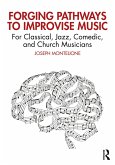Interpretive and biographical essays by a major authority on Bach and Mozart probe for clues to the driving forces and experiences that shaped the character and the extraordinary artistic achievements of these iconic composers.
The essays in this volume, by one of America's leading authorities on Bach and Mozart, serve a single objective: to promote a deeper understanding of those two great composers both as supremely gifted creators and as human beings.Author Robert L. Marshall draws on a diverse range of interpretive strategies including both textual and musical criticism. Life and work are treated together, just as they were intermingled for the composers.
After apreliminary historiographical contemplation of the "Century of Bach and Mozart," fifteen numbered chapters follow in roughly chronological succession. Among the issues addressed: the artistic consequences of Bach's orphanhood, hisrelationship to Martin Luther, his attitude toward Jews, his relationship to his sons, the stages of his stylistic development, and his position in the history of music; and, moving to Mozart, the composer's portrayal in Amadeus, his wit, his indebtedness to J. S. Bach, and aspects of his compositional process.
The volume concludes with a factually informed speculation about what Mozart is likely to have done and to have composed, had helived on for another decade or more.
ROBERT L. MARSHALL is Sachar Professor of Music emeritus, Brandeis University.
The essays in this volume, by one of America's leading authorities on Bach and Mozart, serve a single objective: to promote a deeper understanding of those two great composers both as supremely gifted creators and as human beings.Author Robert L. Marshall draws on a diverse range of interpretive strategies including both textual and musical criticism. Life and work are treated together, just as they were intermingled for the composers.
After apreliminary historiographical contemplation of the "Century of Bach and Mozart," fifteen numbered chapters follow in roughly chronological succession. Among the issues addressed: the artistic consequences of Bach's orphanhood, hisrelationship to Martin Luther, his attitude toward Jews, his relationship to his sons, the stages of his stylistic development, and his position in the history of music; and, moving to Mozart, the composer's portrayal in Amadeus, his wit, his indebtedness to J. S. Bach, and aspects of his compositional process.
The volume concludes with a factually informed speculation about what Mozart is likely to have done and to have composed, had helived on for another decade or more.
ROBERT L. MARSHALL is Sachar Professor of Music emeritus, Brandeis University.
Dieser Download kann aus rechtlichen Gründen nur mit Rechnungsadresse in A, D ausgeliefert werden.









